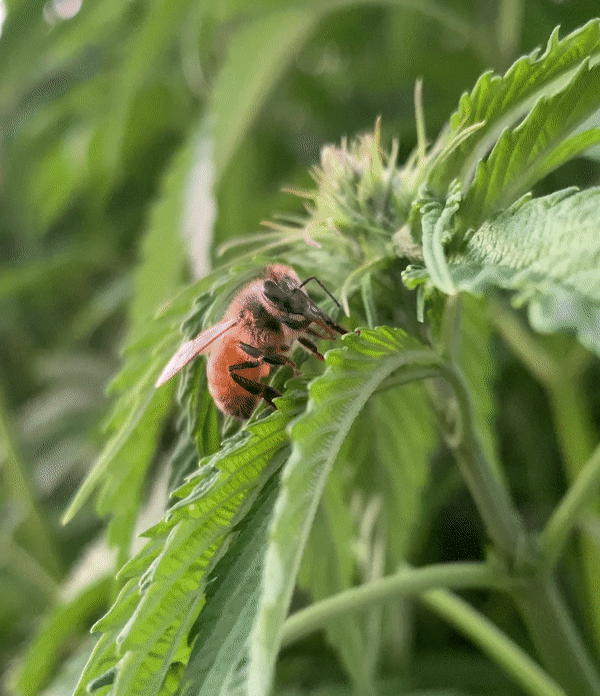Bees are critically important to our food system. 70% of the world’s crop species rely on bees for pollination. Which means that one out of every three bites of food that we eat, and US$170 billion in annual global crop value, is all thanks to the hard labour of our pollination partners, free of charge.
Over the past 15 years, our bee colonies have been disappearing in drastic numbers. In 2019, 40% of US colonies were completely wiped out, and some regions have seen losses of up to 90% according to National Geographic. This rapid decline is a major threat to the survival of the food system, and those who rely on it… Us.
Scientists are beginning to understand the reasons why this is happening, and we can now look to find solutions to protect our bees. One of the key reasons is an increasingly common condition called colony collapse disorder, which is the result of a parasite that invades hives, spreading disease, and eventually wiping out entire colonies. The destruction of habitats and increasing exposure to pesticides from conventional agriculture, are the other major contributing factors causing widespread damage to bee health and colony numbers.
Paul Stamets, the world-renowned mycologist (mushroom man), may have found a solution to the colony collapse disorder from an extract derived from, who would have thought, mushrooms. There have been numerous studies on the antiviral properties of these extracts, and the results are looking pretty promising.
Hemp may also be part of the solution. Due to the destruction of natural habitats, the available pollen sources for the bees to make use of are significantly affected. Male hemp plants create substantial amounts of pollen in order to fertilise female plants to produce seeds. There is so much surplus pollen in a hemp field, that on a windy day, it can look like you’re walking into a dust storm. This surplus provides a great pollen source for bees to make use of, and the flowering cycle of hemp is late in summer, which is a time when other flowering crops and plants are no longer blooming. By providing a nutrient rich pollen source at a time of year when others are scarce, hemp provides a valuable commodity for bees leading into winter.
The health of a bee colony is directly reliant upon the nutritional status of their habitat - ie. the flowering resources they have access to. The diversity and phytochemical richness of pollen sources helps to build resistance against pathogens and disease (just like foods in our diet). The nutritive value of hemp and the diversity of phytochemicals and antibacterial compounds produced by the plant, may also provide further benefits to the overall health of bees. Therefore hemp could play an important role in protecting our bee colonies against the growing number of stressors in our ever changing world.

